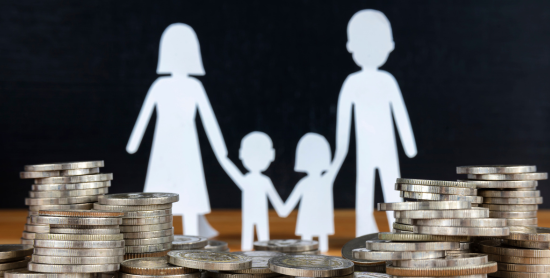
Updated: 29th October, 2025
The end of the financial year is always a busy time, and preparing early makes lodging your tax return much easier. By gathering the right documents ahead of time, you can ensure your return is accurate and processed smoothly, and receive any refund you’re entitled to without delay.
Income
The Australian Taxation Office (ATO) automatically receives information from your employers about the salary and wages that you have been paid for the financial year. You also need to declare all income from other sources on your tax return.
- Wages, salaries, allowances, or bonuses from all employers.
- Pensions, annuities, or government payments such as the Age Pension or other Centrelink benefits.
- Investment income including interest earned and dividends paid.
- Business income if you have a business in addition to a job.
- Foreign income.
- Crowdfunding income.
- Sharing economy income, such as Uber, Airbnb, or Airtasker.
- Cryptocurrency gains or other digital asset income.
- Income such as hobbies, prize money, compensation or insurance payments may be tax-free, but check with us.
Even if you have only earned a small amount from one of these sources, it still needs to be declared. Keep detailed records for anything you have earned apart from salary and wage payments from employers.
You should retain:
- Bank statements that show interest income.
- Proof of earnings from other sources such as crowdfunding or sharing economy platforms.
- Records of business or hobby income.
- Records of government payments received.
- Records of any other payments received from overseas sources, prize winnings, insurance, or investments.
- Records of cryptocurrency transactions or digital asset sales.
Tax Deductions
To maximise your return, make sure you capture all your eligible work-related deductible expenses.
Employees are entitled to claim work-related expenses as a tax deduction. To claim a deduction, you must have spent the money out of your own funds and not been reimbursed by your employer. The expenses must relate directly to your income as an employee. Always keep invoices and receipts as proof of payment.
Expenses you may be able to claim:
- Vehicle and travel expenses – use a travel diary to record details of trips taken for your employment.
- Clothing, laundry, and dry-cleaning expenses – you can claim occupation-specific clothing, uniforms, and protective gear.
- Home office expenses – you can claim either the fixed rate method of 67 cents per hour for hours worked at home, or the actual cost method. Accurate records of hours worked and receipts for expenses are required.
- Self-education expenses – some education expenses that relate to your current employment are claimable.
- Tools and equipment – if you buy gear to help you in your job, this may be claimable. Small tools of the trade, protective items, professional references and laptops are some examples of equipment you may be able to claim.
Occupation and Industry-Specific Guidelines
The ATO recognises that some occupations and industries have specific requirements that employees need to pay for.
There are handy ATO tax time toolkits and fact sheets for many industries, including hairdressers, teachers, performing artists, hospitality workers, lawyers, medical professionals and more.
These guides are a great starting point if you are not sure what you can claim, but we can provide advice tailored to your situation when you do your tax return with us.
Superannuation
If you have made personal superannuation contributions separate from your employer’s superannuation guarantee contributions, you may be able to claim this as a tax deduction. You will need to provide a notice of intent to claim form to your super fund and receive an acknowledgement from the fund before including it in your tax return.
Records to Keep Each Year
The ATO requires individuals to keep certain records for at least five years after lodging a tax return. Having these organised ensures your claims are substantiated and makes future returns much easier.
You should keep:
- Income statements or payment summaries from all employers.
- Bank statements showing interest earned.
- Dividend and investment statements.
- Records of cryptocurrency and digital asset trades.
- Receipts and invoices for deductible expenses (travel, clothing, home office, tools, education).
- Logbooks or diaries for work-related travel and home office hours.
- Private health insurance statements.
- Superannuation contribution notices.
- Records of government payments or allowances received.
Good record-keeping not only keeps you compliant but also ensures you don’t miss out on deductions you are legally entitled to claim.
Achieve Business Solutions are the business accountants that business owners and individuals in South-East Melbourne and the Mornington Peninsula trust. Book a time with us to prepare for your next tax return, and we will make sure you make the most of all applicable tax deductions.